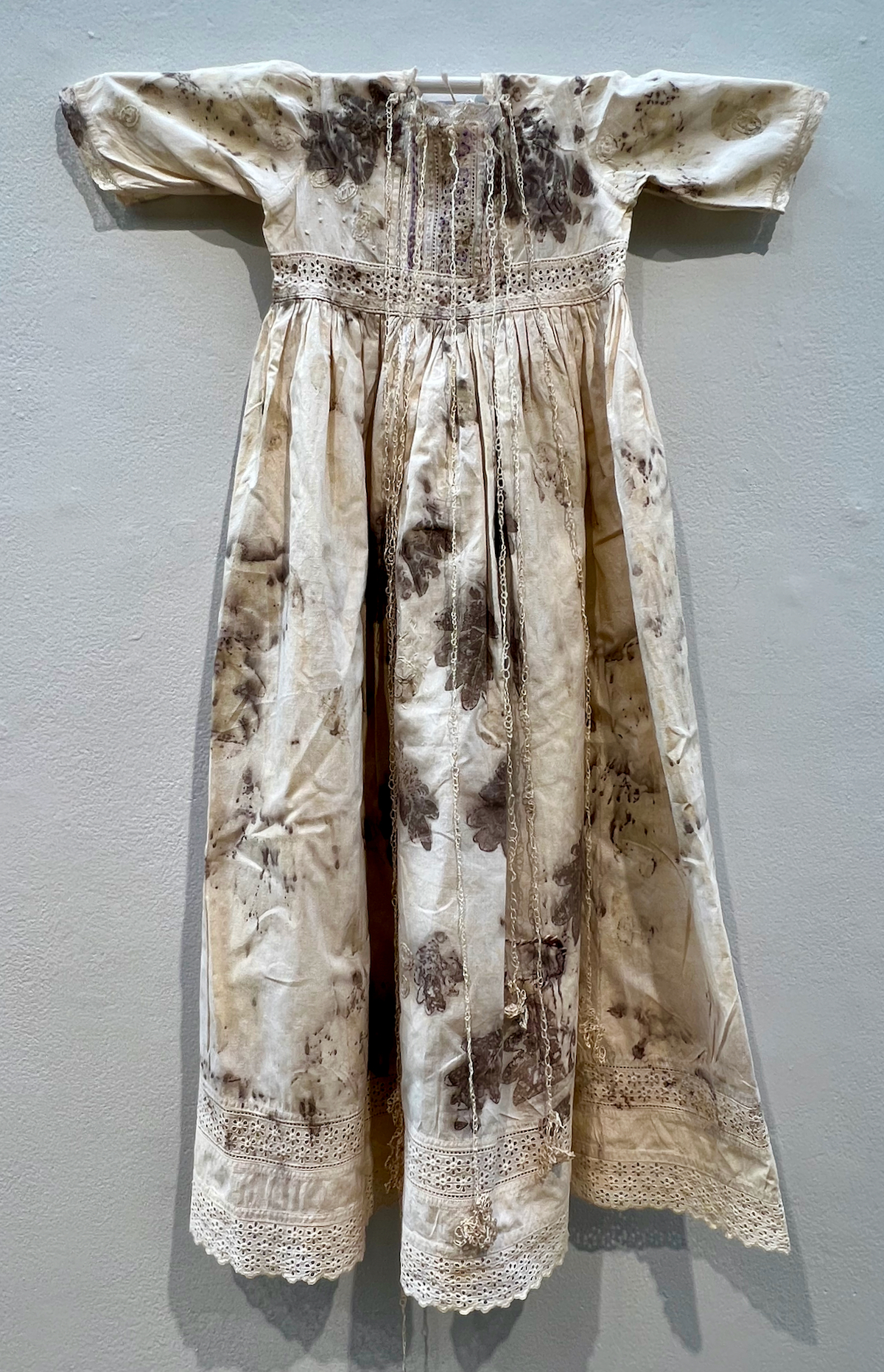
Bacterial Baptism (2022) is based on a vintage christening gown which has been altered by the artist to tell the story of research into how the microbiomes of babies develop, with a focus on the bacterium Clostridioides difficile, originally discovered by Hall and O’Toole in 1935 and presented in their paper “Intestinal flora in new-born infants”. It was named Bacillus difficilis because it was difficult to grow, and in the 1970s it was recognised as causing conditions from mild antibiotic-associated diarrhoea to life-threatening intestinal inflammation. By the early 2000s it was making headlines as a ‘superbug’ that was difficult to treat.
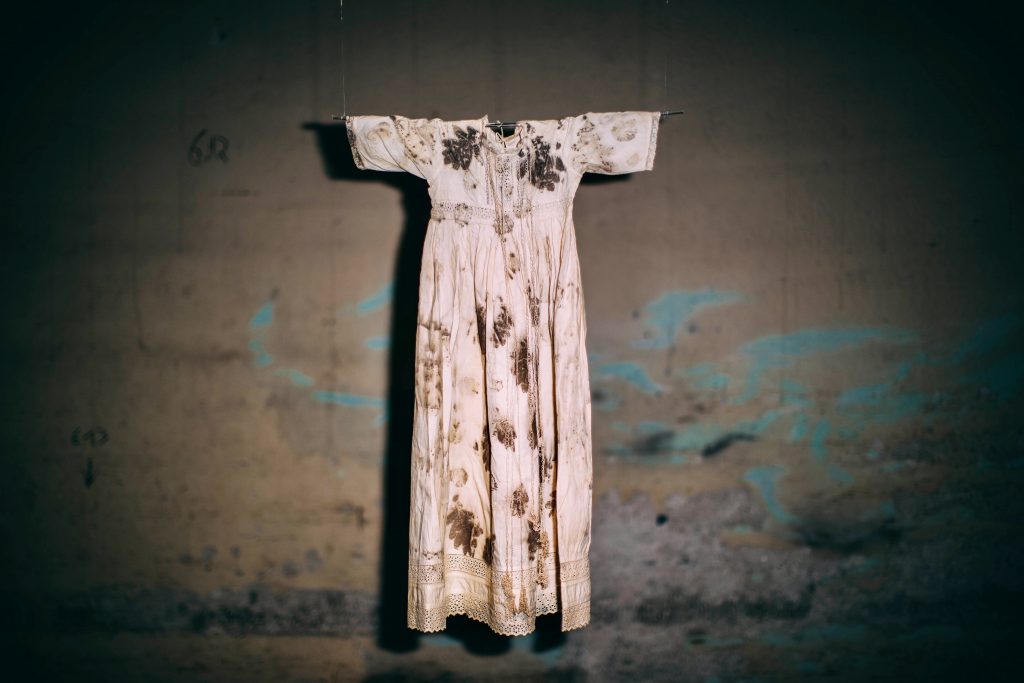
The gown references stories in the original research paper which studies the appearance of bacteria in very young infants, and some of the historical methods used, including the use of animal models, and of agar made using milk. The embroidery silk is dyed using stains used in the study of the gut microbiome and the gown is decorated with hand-crocheted linen lace grown in lab with (sterilised) C. difficile biofilms. The piece also considers how new-borns become colonised by bacteria during birth in what has been described as ‘bacterial baptism’
C. difficile infection tends to affect adults, and particularly older people on antibiotics, and a lot of research has been done in this area. C. difficile can be present in human guts without symptoms, but when antibiotics are taken problems can arise. When we take antibiotics to treat an infection, they can affect any susceptible bacteria they come into contact with. The vast array of bacteria living within our guts (the gut microbiome) is no exception. Antibiotics can deplete the gut microbiome leaving space and nutrients for C. difficile to grow, produce toxins and cause disease.
In contrast, despite the discovery of C. difficile first being made in infant faeces, we know relatively little about how it affects them. C. difficile is found more frequently in infant faeces than in those of children and adults, but usually without symptoms. It is not clear what role it may play in infant diarrhoea.
The piece was made in collaboration with Dr Jane Freeman, University of Leeds. Supported via Outreach Funding as part NIHR/HEE ICA Clinical Lectureship awarded to Dr Jane Freeman (Funder: National Institute for Health Research/Health Education England), and by Arts Council England
Materials: Antique christening gown, embroidery, microbiology dyes, crocheted linen lace grown with Clostridiodes difficile biofilms and then sterilised.
Exhibitions
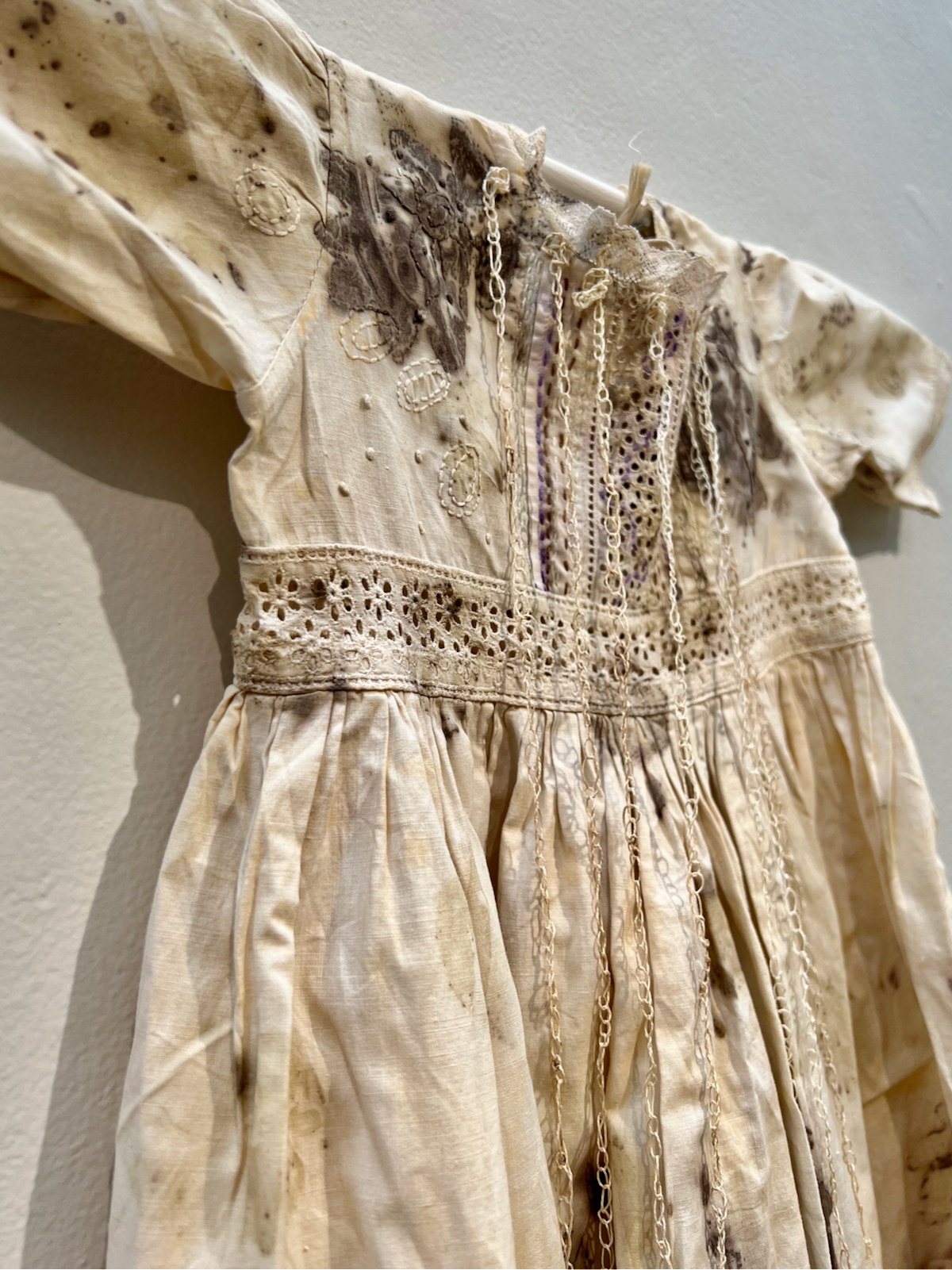
“Collateral Effects” at the North Wall Oxford, UK, 5th – 29th October 2022.
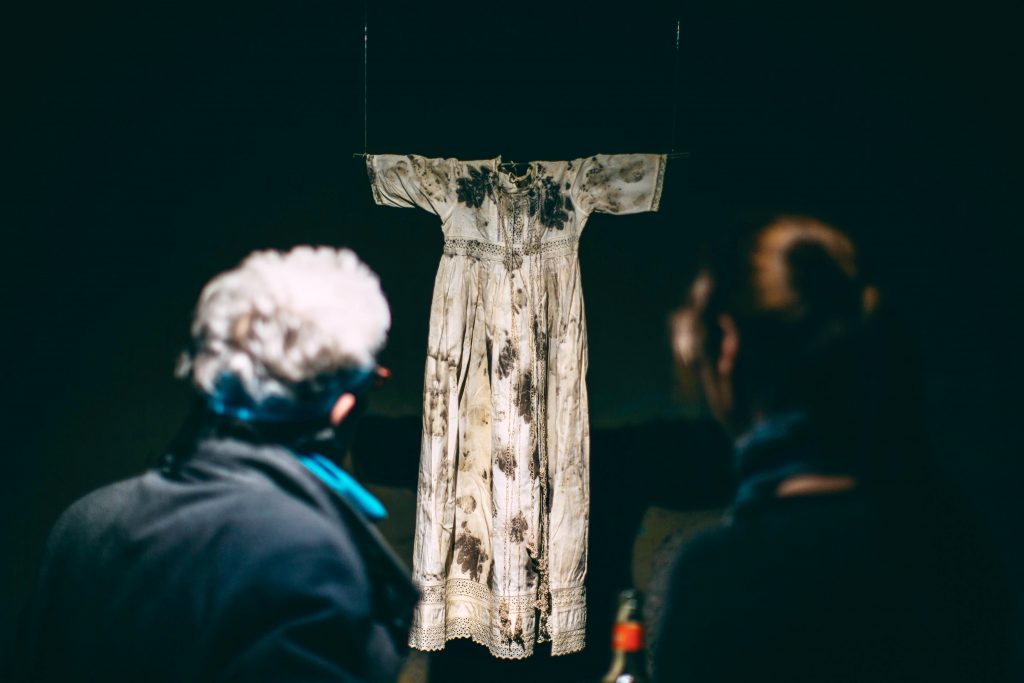
“When Metabolisms Become Form” at Weltkunstzimmer, Dusseldorf, Germany, 29th March – 30th April 2023.
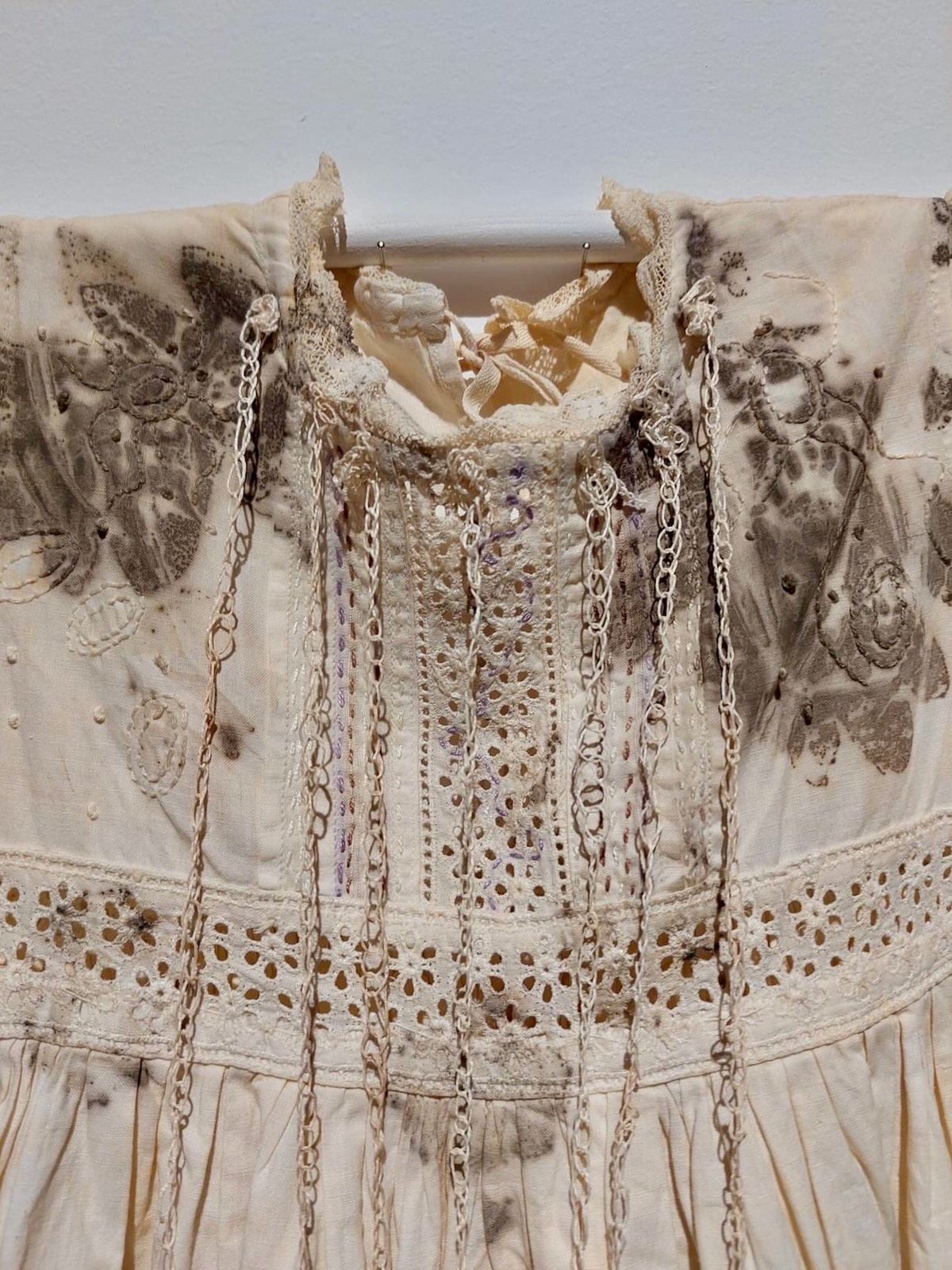
BioArt Revolution/ Revoluția BioArt, an innovative solo exhibition by Anna Dumitriu which brought together contemporary artistic approaches and modern scientific experiments to address issues of global relevance such as infection, climate change, and diversity, was part of Timișoara 2023 European Capital of Culture, from 30th September to 1st October 2023. The exhibition, which was created in collaboration with the Romanian Science Festival, took place in the stunning setting of Bastionul Maria Theresia, Galeria 2, Str. Hector, nr. 1, Timișoara, Romania.
BioArt Knowledge: A Solo Exhibition by Anna Dumitriu at the Yarrow Gallery in Oundle, Near Peterborough, UK, from 9th November – 6th December 2023.

Fragile Microbiomes (solo exhibition) at the Thackray Museum of Medicine, Leeds, UK, from 10th February to 23rd June 2024.
